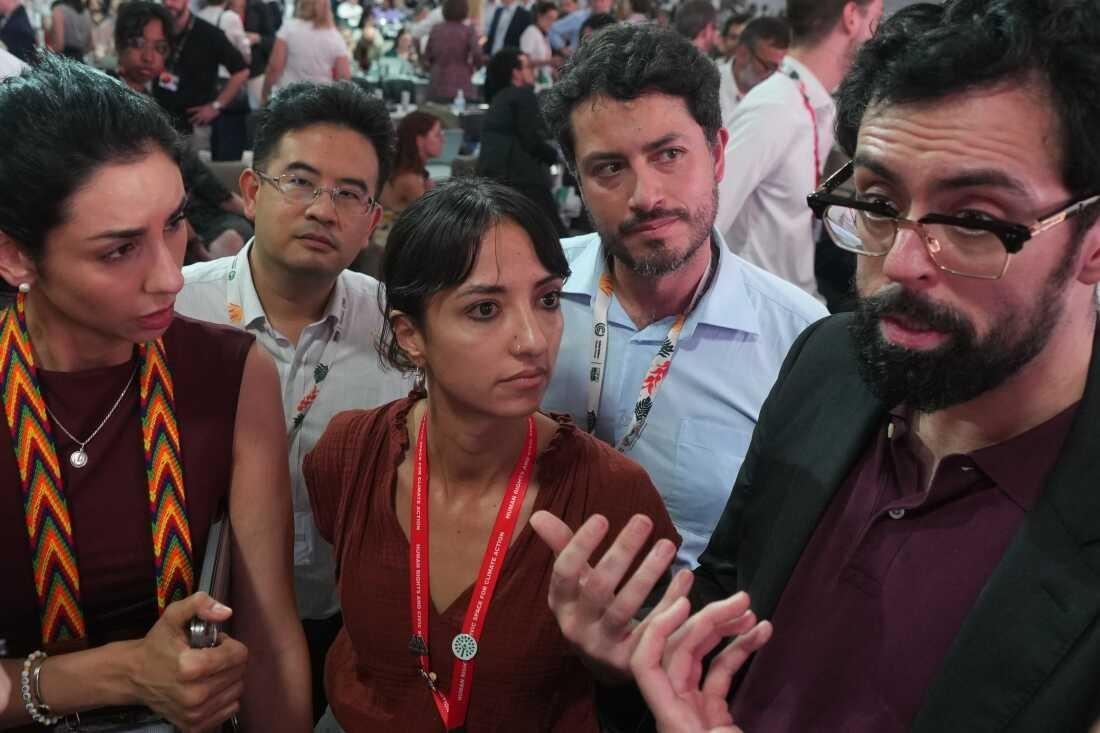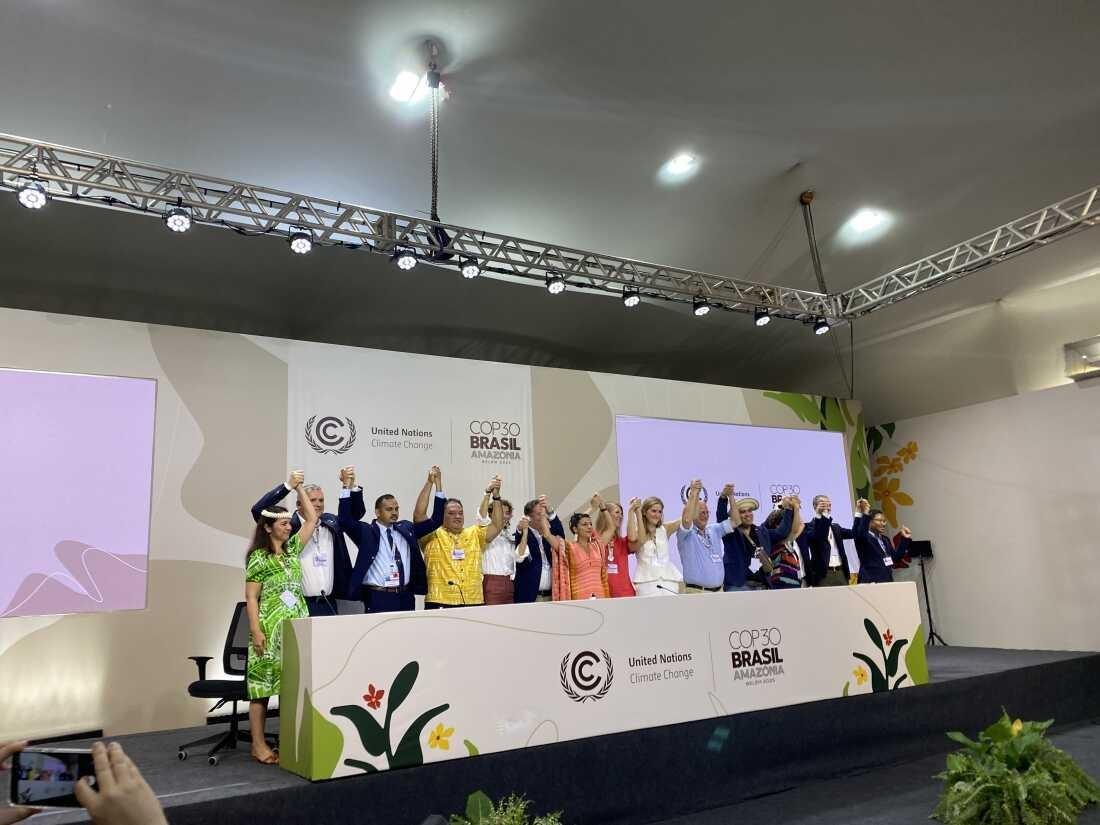Link: https://www.npr.org/2025/11/22/nx-s1-5615207/u-nclimate-talks-end-cop30-brazil
Please see the link above for the source text.
U.N. climate talks end without agreement on phasing out fossil fuels
November 22, 2025
By Julia Simon
Michael Copley
Rebecca Hersher
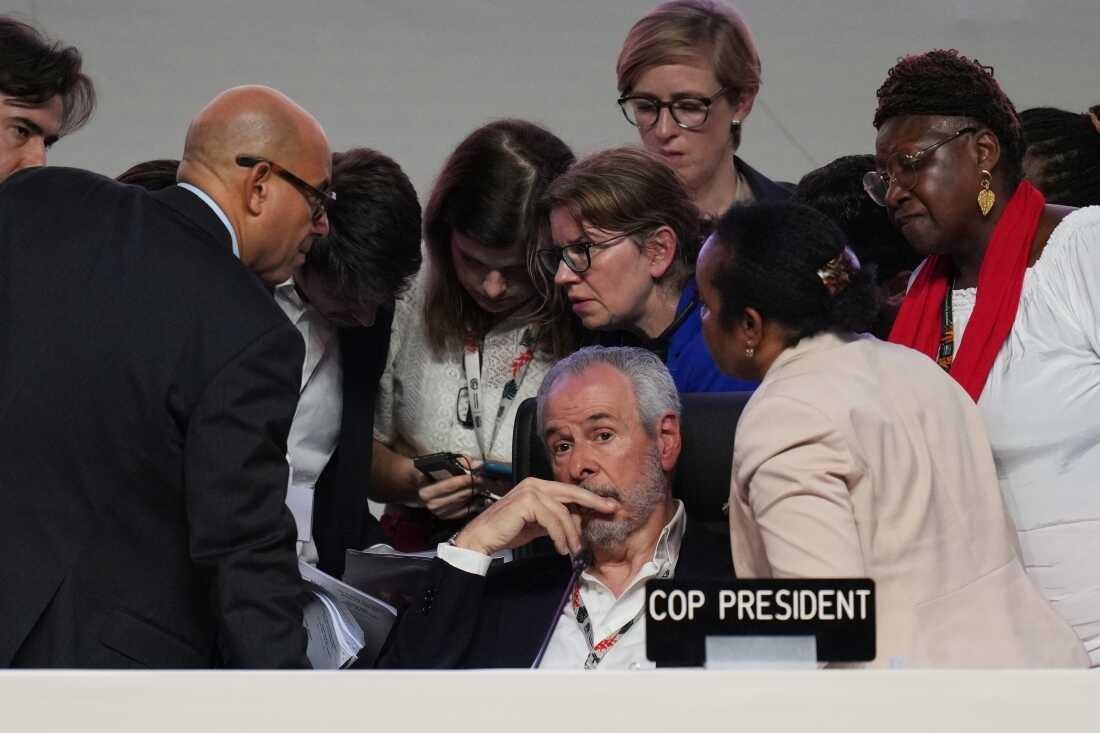
André Corrêa do Lago, center, the president of the COP30 climate conference in Brazil, sat as negotiators huddled in last-minute deliberations on Saturday.
Andre Penner/AP
BELEM, Brazil — This year's United Nations global climate conference in Brazil ended on Saturday with a formal agreement that failed to address phasing out fossil fuels — the main driver of global warming.
The United States was conspicuously absent from this year's talks, known as COP30, after the Trump administration refused to send a delegation to Belém, Brazil.
In the end, the conference delivered only modest progress on international efforts to curb global warming and pay for the costs of adapting to a hotter planet.

Climate
3 massive changes you'll see as the climate careens toward tipping points
Earlier in the week, more than 80 countries had demanded
negotiators agree to a "roadmap" to transition the global economy away from fossil fuels. The group included many developing nations hit hard by climate change, along with the United Kingdom, Germany, and oil producers like Mexico and Brazil.
They said world leaders need to start drawing up concrete plans to deliver on a landmark 2023 commitment to reduce the use of oil, coal and natural gas.
However, major fossil-fuel producers including Russia and Saudi Arabia have opposed the creation of a process or timetable to move away from those energy resources.
In the end, the formal agreement did not include any mention of fossil fuels.
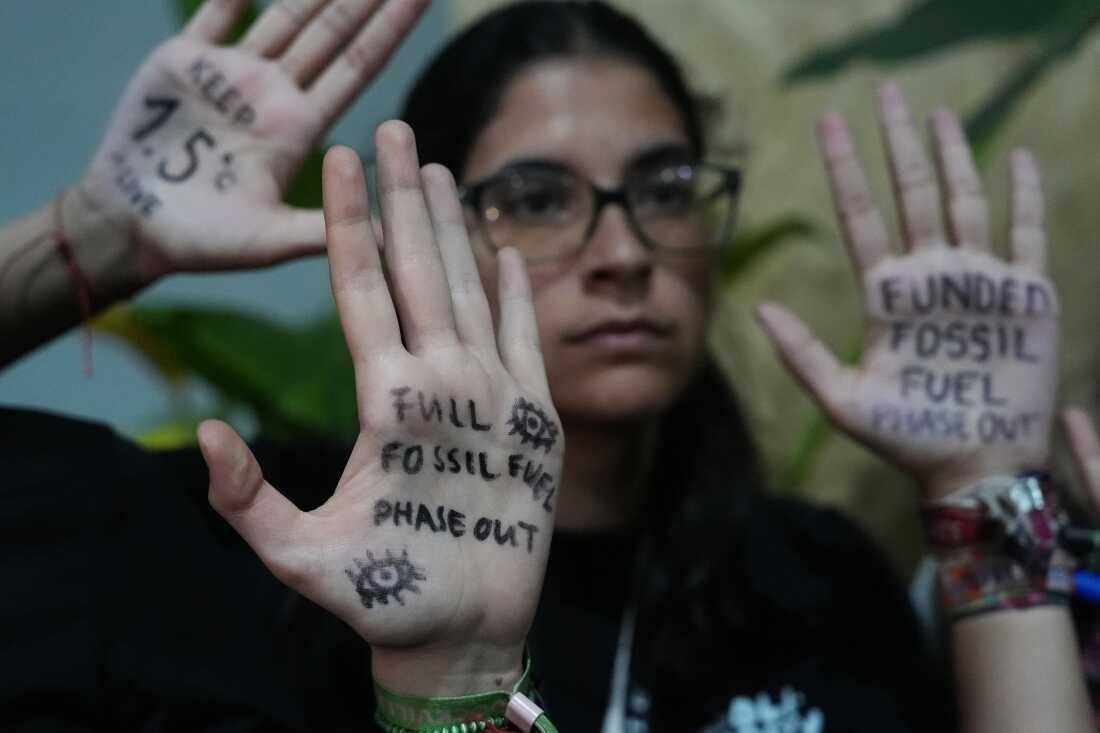
Activists demonstrate outside of the COP30 climate summit in Brazil on Friday.
Joshua A. Bickel/AP
The president of this year's summit, André Aranha Corrêa do Lago of Brazil, acknowledged that many countries had wanted a more ambitious agreement. Two dozen countries have said they'll work alongside the U.N. in a new process focused on transitioning away from fossil fuels.
In April, Colombia and the Netherlands plan to host the first international conference focused on the issue.
Ralph Regenvanu is climate change minister of Vanuatu, an island nation facing rising sea levels. He says the new conference is the key accomplishment to emerge in Belém.
"The text is not great, but at least we have an outcome," Regenvanu says.
Here are the important take-aways from COP30.
No roadmap for fossil-fuel transition
The burning of fossil fuels remains the biggest driver of global warming. However, climate negotiators have struggled for years to agree on how countries should address the world's reliance on those resources.
Two years ago in Dubai, countries for the first time called for a global transition away from fossil fuels.
This year, dozens of countries had wanted world leaders to start coming up with plans to do just that. But in the end, there was no such deal.

Climate
This oil producer announced it would move away from oil. Here's what happened next
The final agreement in Brazil says countries understand the "need for urgent action" to make "deep, rapid and sustained" cuts in greenhouse gas emissions, without any specific mention of fossil fuels.
Many countries were disappointed.
"There is no [climate change] mitigation if we cannot discuss transitioning away from fossil fuels," said Daniela Durán González, head of international affairs for the Colombian Ministry of Environment and Sustainable Development.
Setting a roadmap to phase out fossil fuels won't be easy. The
global economy still largely runs on oil, coal and natural gas, though countries are adding huge amounts of renewable energy to their electric grids.
A transition away from fossil fuels should not be imposed on countries, especially developing nations, Nigeria's delegate told the conference.
Nigeria will not support climate plans "that will lead to our sudden economic contraction and heightened social instability," the delegate said.
The planet will pass a critical temperature limit in the 2030s
COP30 came as a crucial temperature target slipped out of reach. Under the 2015 Paris Agreement, nations agreed to try to limit global warming to 1.5 degrees Celsius, or about 2.7 degrees Fahrenheit, compared to temperatures in the late 1800s.
Scientists have found that risks to people and ecosystems accelerate with every tenth of a degree beyond that limit.
But a recent United Nations report concluded that the planet will likely exceed 1.5 degrees Celsius of warming in the next decade.
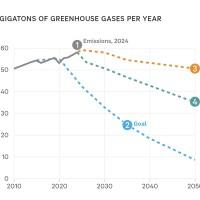
Climate
Climate negotiations have started. Here's how far countries need to go
It is still possible to limit that overshoot, however. If countries can cut overall greenhouse gas emissions in half by 2035, scientists say the planet would quickly return to lower levels of warming.
The world is not currently on track to meet that goal. Under current policies, global emissions are expected to fall by just 12% by 2035.
That's not nearly enough to avoid catastrophic warming, according to science from the Intergovernmental Panel on Climate Change.
"The science says we need five times that much," says Alden Meyer, a senior associate at E3G, a climate change think tank. "We need a 60% reduction if we have any chance of staying close to the 1.5 Celsius temperature goal."

